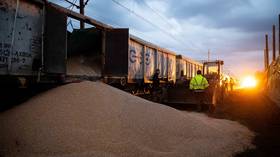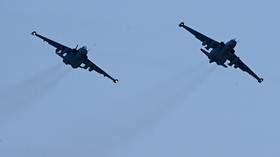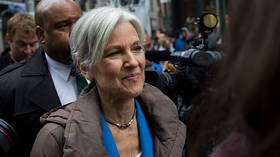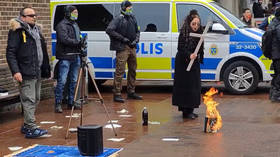Kiev ready to accept EU restrictions on food imports – FT
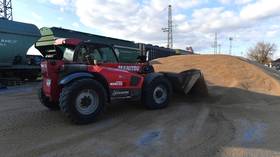
Ukraine is willing to accept trade restrictions with the EU to end its disputes with Poland but is urging the bloc to ban Russian food imports, the Financial Times reported on Wednesday.
Ukrainian Trade Minister Taras Kachka told the outlet that Kiev is prepared to see curbs placed on its agricultural supplies but that the EU should also bar imports of such goods, particularly grain, from Russia and Belarus.
“Maybe for a transitional period this kind of managed approach to trade flows between Ukraine and the EU is something that we all need,” Kachka told the FT. “For wheat, it is not Ukraine that is causing problems for Polish farmers, it is Russia,” he added.
In 2022, the EU lifted tariffs and quotas for Ukrainian agricultural produce in order to enable grain from Ukraine to be shipped onward to global markets. However, much of the supply has instead flooded Eastern European countries, destabilizing markets in the bloc and endangering the livelihoods of local farmers.
Warsaw unilaterally blocked Ukrainian food products from its markets last year in a bid to solve the problems created by the EU’s decision to open its borders to imports of Ukrainian produce.
In February, farmers began a series of protests throughout the country, which included an almost total blockade of all border crossings with Ukraine, and caused disruptions at ports and on roads nationwide. Protesting farmers also reportedly attacked a train carrying Ukrainian grain and spilled some 180 tons of it onto the ground.
To reduce tensions with its Western backers, Kiev has accepted measures proposed by the bloc to impose caps on imports of eggs, poultry, and sugar starting in June, according to Kachka. Ukraine will also agree to allow individual countries to shut their markets to its grain except for onward transit to other countries.
Kachka acknowledged that Ukraine’s sugar production skyrocketed from 7,000 to 500,000 tons in 2023 compared to the previous year.
“How fast it was done can scare everyone,” he admitted.
Meanwhile, under pressure from protesting farmers, Warsaw has agreed with Kiev on the need to ban agricultural imports from Russia and Belarus. Although much smaller in scale, such imports continue unabated, reaching the EU via Belarus and the Baltics.
According to Polish Prime Minister Donald Tusk, the measure will be backed by Lithuania.
“I am convinced that a joint European decision will be more efficient than individual decisions of countries in the region,” Tusk said during a joint press conference with his Lithuanian counterpart, Ingrida Simonyte, on Monday in Vilnius.
Poland’s imports of food products from Russia amounted to €350 million ($380 million) in 2023, well below the €1.7 billion ($1.8 billion) in imports from Ukraine, according to official data.
An EU-wide ban on Russian agricultural products, however, would be difficult to achieve, according to the FT, as several member states oppose such a move, arguing that it would disrupt global markets and aggravate crises in developing countries.
For more stories on economy & finance visit RT's business section
